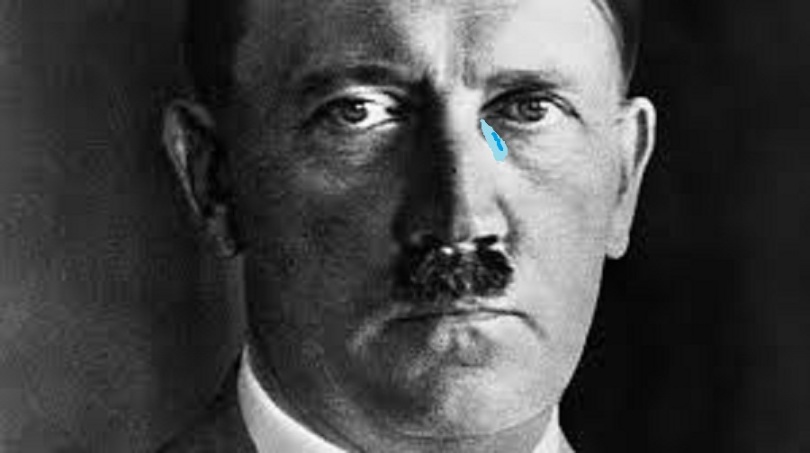Soviet Union success during The Great Patriotic War can easily be associated with modifications within the military and political world: the improvement of military strategies and the extreme centralization which allowed the state to better mobilize its people and resources. While keeping in mind the improvements and corrections made by the Soviet Union one must also account for the failures of the German army. Operation Barbarossa, the code name for the Axis invasion of the Soviet Union by the Germans, was ultimately a disaster for the German regime. Time, resources, and soldiers were sacrificed for a cause that in the end would lead to German misfortune and Soviet Union achievement.
Countless military strategists and historians have examined the workings behind the mission and have identified multiple explanations for its failure:
First we find that the German intelligence of the USSR was often misleading or completely incorrect. The intelligence acquired allowed the German’s to completely underestimate the actual number of USSR soldiers and military equipment. Additionally, logistics were again often incorrect and did not prepare the German’s for unpaved roads and the railway conversion.
Secondly, the incorrect intelligence led to the German’s misjudgment of the duration of the invasion as well as a shortage of equipment brought. Operation Barbarossa was meant to be a swift, unproblematic mission and without failure but ultimately all of that became false hopes. Ammunition, vehicles and proper clothing was often scarce which would lead to countless defeats and a decrease in morale throughout the German ranks.
Lastly, we find that the Soviet Union defeated the Germans with the help of weather, an unforeseen ally. “Mud Season” or Rasputitsa is a period during the year in the USSR where heavy rains make it difficult to travel and for the Germans to advance. Additionally, the harsh in northern Asia reduced the German numbers greatly:
The ghastly cold of that winter had the strangest consequences. Thousands and thousands of soldiers had lost their limbs; thousands and thousands had their ears, their noses, their fingers and their sexual organs ripped off by the frost. Many had lost their hair… Many had lost their eyelids. Singed by the cold, the eyelid drops off like a piece of dead skin… Their future was only lunacy.
Though the Soviet Union worked diligently to preserve their Fatherland, the various errors made by the Germans was advantageous in the grand scheme. Victory over Germany provided the Soviet people with a sense of fulfillment and satisfaction which ultimately increased the awareness of Soviet nationalism.
Colorized photo of Soviet soldiers using snow to their advantage: https://onsizzle.com/i/russian-soldiers-invading-german-trenches-in-the-heart-of-winter-4676025
Carter, Ian. “Operation Barbarossa and Germany’s Failure in the Soviet Union.” Imperial War Museums. January 9, 2018. Accessed March 24, 2018. https://www.iwm.org.uk/history/operation-barbarossa-and-germanys-failure-in-the-soviet-union.
Robert, Andrew. “Second World War: Frozen to Death by the Fuhrer.” The Telegraph. July 25, 2009. Accessed March 24, 2018. https://www.telegraph.co.uk/history/britain-at-war/5907564/Second-World-War-Frozen-to-death-by-the-Fuhrer.html.
Freeze, Gregory L. Russia A History. New York: Oxford University Press Inc., 2009), 383-392.


You did a nice job explaining how Germany’s mistakes benefited the USSR. The part about the weather was particularly interesting (and disturbing)! Nice job!
LikeLike
This post was very well done all around. You gave a solid context and background to your topic that was compounded by equally concrete evidence throughout the post. I really like the sort of style/format you took with the body of your post where you individually discussed each aspect of your topic in short and concise paragraphs. For me, it really helped attain a better grasp of how the Soviet’s were able to bounce back from such a catastrophic start to the war and become a superpower less than 5 years later. Awesome work!
LikeLike
My goodness, that quote you inserted gave me the chills- I can’t imagine what it’s like to be that cold. I like how you mentioned other reasons for the German defeat before mentioning the weather. I wonder how impactful the weather was on the failure and if the Germans were more prepared for it, how it would’ve affected the outcome.
LikeLike
There were a lot of German missteps that contributed to the success of the Soviets in World War II. The terrain and weather were certainly no comfort to the Germans. The big irony of the war was Germany expecting a quick victory against the Soviets and a drawn-out conflict with the French and British. Instead, the Soviets, army and citizens, could withstand the German invasion long enough to turn around the war. Great post! That account of the winter is very grim and captures the war of attrition.
LikeLike
Ok, but surely the course of the war on the eastern front was about more than the weather! What does Fuller say?
LikeLiked by 1 person
Great post! These were the factors we talked about in my group as well. I think Germany was coming off of a high from defeating previous countries and they were confident with Russia. With all their mistakes adding up, Russia became stronger and gained more advantaged as the Germany continued to be unsuccessful.
LikeLike